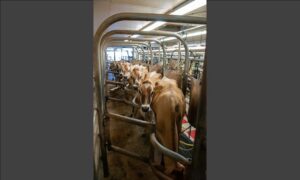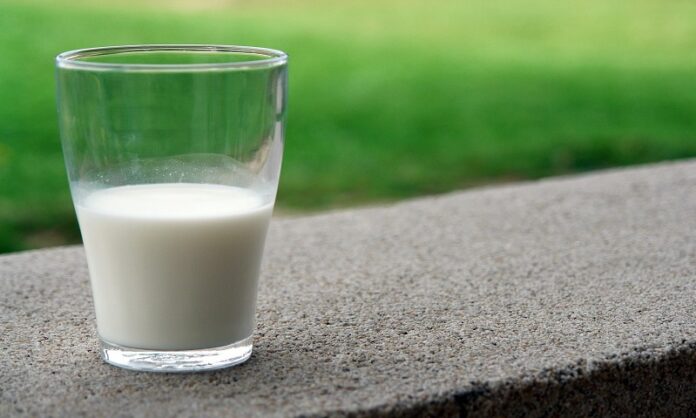For most human beings, life begins with consuming milk rich in calcium and other nutrients. Infants produce plenty of lactase enzymes that allow them to absorb their mother’s milk. But, as adults, our lactase production decreases which renders over 75% of the global population lactose intolerant, as per a report by Northwestern Medicine. As a result, people suffer from cramps, bloating, diarrhoea, and other unpleasant lactose related ailments due to the consumption of dairy foods. Recent researches have proved that dairy is not necessary for optimal human health.
Before we dive into why dairy is not a requisite for our diet, let us understand which foods come under dairy. Milk (Cow or Buffalo), cheese, yoghurt, cottage cheese, butter, and every food item fermented from milk are dairy foods. Since time immemorial, dairy has been prized as the cardinal source of calcium and vitamin D. But, contrary to popular perception, a multitude of plant-based sources are available through which we can get these nutrients.
Dairy: A Health Risk For Humans?



Intolerance of Dairy Products
Dairy products contain plenty of proteins, fatty acids, lactose, and other nutrients which do not suit everyone. Milk is highly insulinogenic, which spikes blood sugar levels. Its inflammatory properties also cause acne, sinus congestion, and digestive distress.
Milk is the most common allergen in the world that contributes to various allergies in children. Most humans are not able to digest milk and suffer from gas, nausea, and bloating. A study conducted by Sanjay Gandhi Post Graduate Institute of Medical Sciences revealed that three out of four Indians are lactose intolerant.
Low Bone Strength
Yes, all our lives we have been told that milk is the only source of calcium which strengthens our bones. But how true is it? Latest studies have reported that cow’s milk leaches out the calcium from our bones. Animal proteins produce acids when they break down, and calcium is an acid neutralizer. To neutralize and flush out acids, our bodies use calcium from milk and our bones.
Hence, with every pint of milk, calcium from our bones is used that increases the risk of osteoporosis. A Harvard Nurses’ Study revealed that more than 77,000 women from ages 34 to 59 were at a higher risk of broken hips and arms with consumption of two or more glasses of milk per day. Another study of more than 96,000 people showed that high milk intake by men as teenagers led to more bone fractures in adulthood.
Saturated Fats and High Cholesterol
Examples of dairy in foods like milk, cheese, and butter that have full-fat content and elevated levels of saturated fats, lead to high cholesterol. A single glass of milk contains almost 24 mg of cholesterol harming the heart. Milk and other dairy products are prime sources of artery-clogging saturated fat.
A dairy diet high in saturated fats, fats, and cholesterol contribute to a spike in fatal heart diseases, making it a top killer. Typical cheeses and their variations are almost 70% fat. Imagine consuming that much fat in a day just from dairy!
Cancer Risk
Studies have highlighted that high-fat content and other hormones in dairy products lead to a heightened rate of cancer. Research by National Cancer Institute, NIH, and WCRF found that women drinking 1 /4 to 1 /3 cup of cow’s milk per day had a 30% increased chance of breast cancer. One cup per day increases it by 50%!
With the regular consumption of dairy products like milk and cheese, men are more prone to the risk of developing prostate cancer by 30-50%. Another Swedish study indicated that women with four or more servings of dairy per day are twice as likely to develop ovarian cancer.
Symptoms of Lactose Intolerance


Think you are lactose-intolerant? See the following symptoms if you think you are. There are tests too that can help you find out the same. According to National Health Portal of the Government of India, symptoms of lactose intolerance may be noticed within a few hours after ingestion of milk or milk products or other foods that contain lactose. Symptoms usually appear within 30 minutes to two hours after lactose intake. These symptoms may include:
- Bloating
- Flatulence
- Diarrhoea
- Nausea
- Vomiting
- Pain in abdomen
- Stomach “growling” or rumbling sounds
- Feeling sick
- Urgency with bowel movements
Sometimes people who are lactose-intolerance could go on for years without finding out the key reason behind their stomach issues. Irritable Bowel Syndrome or IBS has been closely associated with intake of dairy. It is important to get yourself tested for milk intolerance if you have any of the above symptoms or have had stomach issues for a long time.
Where To Get Your Calcium and Vitamin D From, If Not Dairy?
The answer lies in three words – ‘Plant-based products’. Calcium and Vitamin D are crucial for bone strength and managing chronic diseases. Replace your sources of dairy foods, which contribute to your daily calcium and vitamin D, with plant-based sources. Spinach, Kale, Okra, Soybeans, Poppy Seeds, Chia Seeds, White Beans, Calcium-fortified juices, Tofu, lentils, leafy vegetables, almonds, and all other nuts and seeds are excellent sources of non-dairy calcium.
Animal Cruelty in the Dairy Industry



Animals like cows and buffalos go through immense torture in the dairy industry. The industry treats them as mere commodities and they are exploited physically within these dairy factories. Females are artificially inseminated again and again to produce milk. Their calves are taken away causing distress to both the mother and the baby. If it is a male calf, it goes directly to the slaughterhouse or is left to fend for itself; a female calf enters the torturous cycle like its mother. The horrors of dairy industry have been exposed by several organisations, and by consuming dairy, we are only adding to the agony of these innocent animals. Mastitis, hot-iron branding, tail docking, dehorning are just the tip of the abusive iceberg that the cattle suffer. Moreover, with so many plant-based milk sources available for our calcium needs, it has become easy to quit dairy.
Conclusion
Dairy foods, though packed with nutrients, are more harmful to us than beneficial. Cancer risk, osteoporosis, high cholesterol, and lactose intolerance are just some of the ailments that come with dairy intake. Plus, the ethical angle! Cattle in the dairy industry face the same fate as the ones in the meat industry. Choose plant-based food supplements to replace the dairy needs and make a healthier choice for the animals and yourself!


